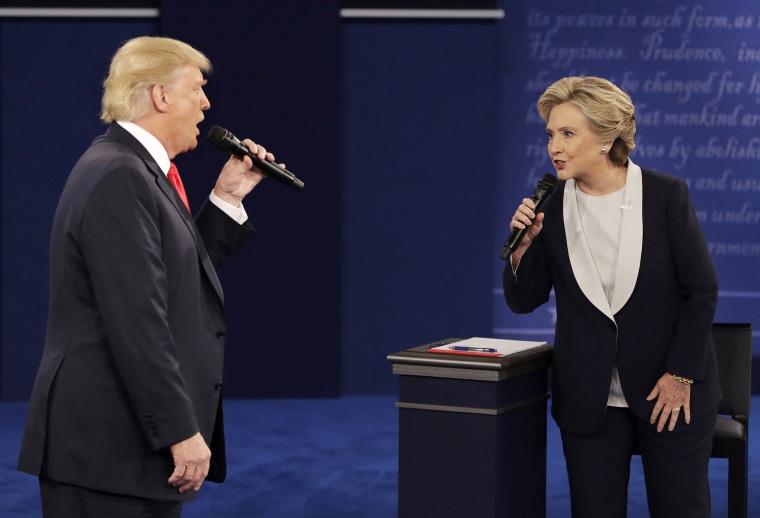Tax experts disputed Donald Trump’s claim during Sunday night’s debate that some of Hillary Clinton’s supporters also took advantage of the tax code.
“Many of her friends took bigger deductions,” Trump said. “Warren Buffett took a massive deduction. Soros, who’s a friend of hers, took a massive deduction.”

People who study tax policy say this isn’t an apples-to-apples comparison.
"You’d have to have had a massive net operating loss to be able to write off the amount Mr. Trump did,” said Steve Ellis, vice president at Taxpayers for Common Sense. “It’s not that many people that can write off nearly a billion dollars.”
Ellis said examples like Trump’s big loss underscores the need for a comprehensive reform of the current, complex tax code.
“Trump’s use of loopholes is pretty egregious. I have not seen other rich guys exploit the tax rules to zero out their income,” said Steve Rosenthal, a senior fellow at the Tax Policy Center of the Urban Institute and Brookings Institution. “Other rich guys reduce their tax rate, not eliminate it completely,” he said.
One common method they can use to do this is via carried interest, which both Trump and Clinton have said they want to eliminate.
Related: Trump Lobbied for Tax Code 25 Years Ago That Forgave Real Estate Losses
A big reason the wealthiest Americans can pay a lower tax rate is because most of their income comes from investments rather than wages or salaries. “The rich are different because they have capital investments, and those investments are largely taxed at a light rate,” Rosenthal said.
The people who own these funds, including some prominent Clinton supporters and donors in hedge funds and private equity, can take earnings as carried interest, which is taxed at the capital gains rate rather than the higher tax rate most Americans pay on wages or salary they earn.
“Certainly somebody who’s a hedge fund manager or operating with other people’s cash — they take advantage of carried interest, which reduces their tax rate,” Ellis said. “I’m sure that’s something donors to both of them have benefited from.”
The tactic can yield significant tax savings. The current tax rate for long-term capital gains for taxpayers in the top bracket is 20 percent, compared to the 39.6 percent top tax rate. For the richest Americans, the IRS also tacks on an additional 3.8 percent tax to each, bringing the respective totals to 23.8 percent and 43.4 percent.
A spokesman for George Soros declined to comment. In a statement issued Monday, Warren Buffett objected to Trump’s characterization of his taxes, according to CNBC. He said his 2015 adjusted gross income was $11.56 million, on which he paid federal income tax of $1.85 million. Buffett also said he had $5.48 million worth of deductions, including $3.47 million in charitable donations.
“"I have paid federal income tax every year since 1944, when I was 13,” Buffett said, adding, "Though, being a slow starter, I owed only $7 in tax that year."
